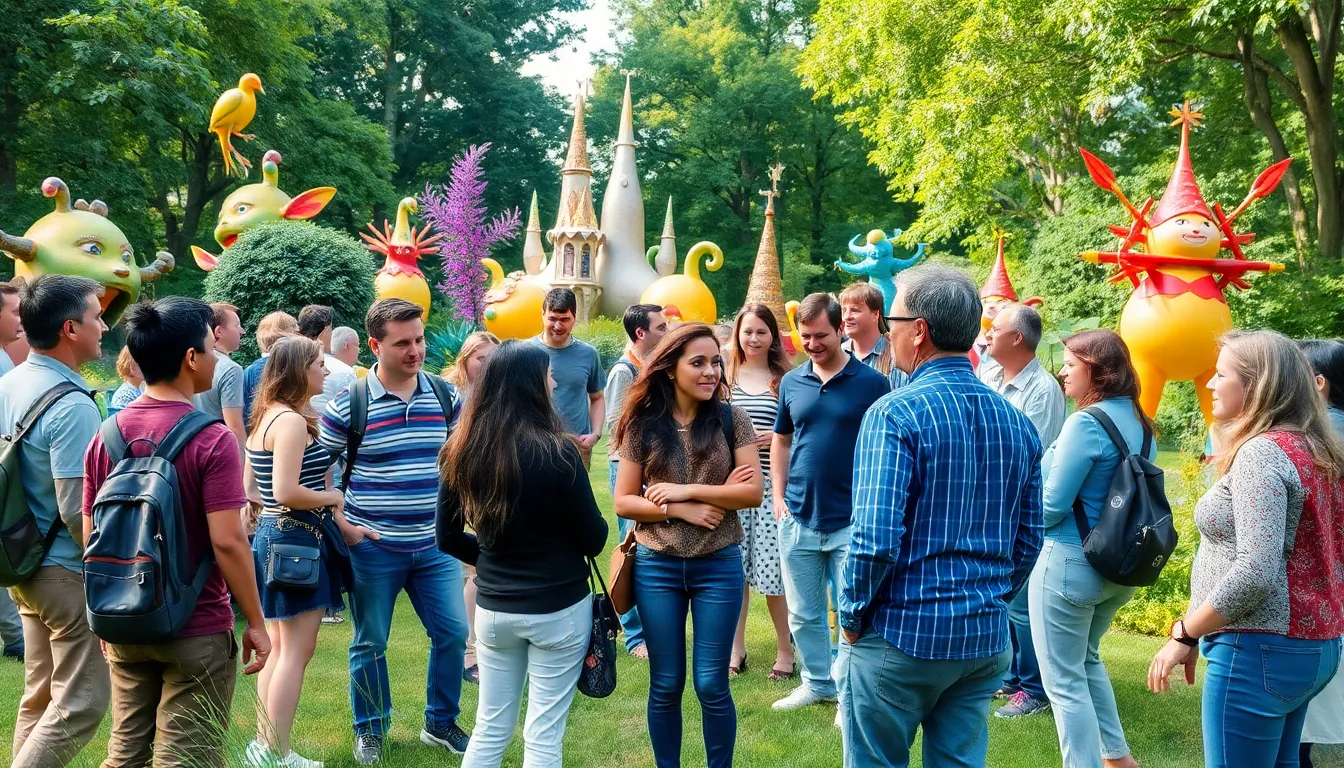Table of Contents
ToggleIn a world where dragons roam and unicorns prance, it’s easy to get lost in the magic of fantasy. Who wouldn’t want to trade the mundane for a life filled with epic quests and enchanted forests? Yet, reality has its own charm, often sprinkled with the unexpected humor of everyday life. Think about it: while you can’t slay a dragon, you can definitely conquer that pile of laundry that’s been staring you down for weeks.
Exploring the theme of fantasy versus reality reveals the delightful tension between our dreams and the world we live in. It’s a dance between the extraordinary and the ordinary, where imagination takes flight while the ground remains firmly beneath our feet. So grab your favorite beverage and let’s dive into this whimsical comparison that’ll make you chuckle, reflect, and maybe even reconsider what’s truly magical in your life.
Understanding Fantasy vs Reality Theme
The theme of fantasy versus reality examines how dreams and routine coexist. This section defines both concepts, highlighting their unique characteristics.
Definition of Fantasy
Fantasy refers to imaginative scenarios beyond the realms of possibility. It includes mythical creatures, magic, and alternate worlds, serving as an escape from everyday life. Popular examples encompass epic tales, such as those found in literature and cinema, where heroes undertake adventures in fantastical settings. These narratives often reflect inner desires and hopes, allowing individuals to explore diverse experiences. Dream elements provide a sanctuary for those seeking adventure or a break from monotony. Elements of fantasy inspire creativity and innovation, even in mundane aspects of life.
Definition of Reality
Reality represents the tangible world experienced daily. It encompasses actual events, interactions, and relationships, shaping individual perceptions. Responsibilities, challenges, and ordinary experiences define daily existence. Individuals navigate work, home life, and social interactions, often peppered with moments of joy and frustration. While reality is often less exciting than fantasy, it offers opportunities for personal growth and fulfillment. Grounding oneself in reality fosters resilience and adaptability, essential traits for overcoming life’s hurdles. Expecting the unexpected develops a deeper understanding of life, enriching one’s overall existence.
Historical Perspectives on Fantasy vs Reality

Historical perspectives reveal a long-standing interplay between fantasy and reality. Cultures across centuries have expressed the contrast through myths and legends. Ancient civilizations often depicted gods and heroes, creating stories that transcended ordinary life. These narratives provided escapism while addressing moral and social issues.
Middle Ages saw the rise of chivalric tales featuring knights on quests. These stories represented ideals of honor and bravery, capturing the imagination of the audiences. Shakespeare’s plays further blurred the lines by intertwining reality with elements of fantasy, captivating audiences with supernatural themes.
Renaissance thinkers emphasized humanism, focusing on real-world experiences. Yet, fantastical elements remained prevalent in literature, creating a duality where readers found meaning in both realms. Romantic literature of the 18th and 19th centuries highlighted the importance of imagination, serving as a reaction against industrialization. Works from this era often romanticized nature and emotions while critiquing the burgeoning reality of the city life.
Modern literature continues this trend, exploring how individuals navigate between their dreams and everyday responsibilities. Science fiction and fantasy genres often serve as a reflection of societal concerns, merging speculative ideas with personal struggles. The ongoing fascination with alternate realities showcases the human desire for escape as well as understanding of true existence.
Art movements, such as surrealism, also demonstrate the dynamic relationship between fantasy and reality. Artists like Salvador Dalí created dream-like imagery that challenged perceptions, encouraging viewers to question their own realities. The enduring presence of fantasy elements across different historical contexts speaks to its fundamental role in shaping human experience and thought.
Examples in Literature and Film
Literature and film provide rich examples of the fantasy versus reality theme. Both showcase how these contrasting realms influence storytelling and character development.
Classic Works
Classic works often blend fantasy and reality. In “Alice’s Adventures in Wonderland,” Lewis Carroll presents a whimsical journey that challenges perceptions of reality. Characters like the Mad Hatter symbolize the absurdity interwoven with everyday life. Similarly, J.R.R. Tolkien’s “The Hobbit” introduces Bilbo Baggins, who ventures into a magical world while dealing with personal growth. Shakespeare’s “A Midsummer Night’s Dream” plays with love and identity, emphasizing how dreams and illusions shape human experiences. These texts captivate readers by blurring the boundaries between what is possible and what is imagined.
Contemporary Interpretations
Contemporary literature and film continue exploring this theme. In “The Matrix,” the protagonist discovers a fabricated reality, prompting questions about perceptions of existence. Similarly, the series “Stranger Things” juxtaposes the ordinary small town with supernatural elements. A recent novel, “The Night Circus,” crafts a world where dreams collide with reality, creating enchanting competition. These modern narratives illustrate the ongoing fascination with escapism and self-discovery, encouraging audiences to reflect on their own lives. By examining both realms, creators highlight the complexities of human emotion and imagination.
Psychological Aspects of Fantasy vs Reality
This section explores the psychological dimensions underlying the fantasy versus reality theme. Recognizing these aspects reveals insights into human behavior and motivation.
Benefits of Embracing Fantasy
Embracing fantasy fosters creativity, encouraging imaginative thinking. It can enhance problem-solving skills by allowing individuals to envision alternative solutions. Engaging with fantastical elements can provide an escape from stress, offering a temporary respite from daily challenges. Additionally, fantasy serves as a safe space for exploring emotions and desires without real-world consequences. It allows for personal growth by challenging conventional thinking and inspiring innovation. Literature and films featuring fantasy open doors to new worlds, inviting deeper connections with characters and experiences. These benefits highlight the positive impact of imagination on mental well-being and emotional resilience.
Dangers of Escaping Reality
Escaping reality through fantasy can pose significant dangers. Overindulgence in fictional worlds may lead to neglect of responsibilities and relationships. Disconnection from actual experiences can result in a distorted sense of priorities, affecting one’s ability to cope with real-life challenges. Individuals may develop unrealistic expectations based on fantastical scenarios, leading to disappointment. Dependency on escapism can hinder personal growth and prevent individuals from addressing underlying issues. Furthermore, excessive detachment from reality may diminish social skills and emotional intelligence. Balancing fantasy with reality is essential to maintain a healthy, fulfilling life.
The interplay between fantasy and reality enriches the human experience in profound ways. Embracing the imaginative can spark creativity and provide much-needed escapism. Yet it’s crucial to remain grounded in reality to foster personal growth and maintain relationships.
Finding a balance between these two realms allows individuals to navigate life’s challenges while still dreaming big. Whether through literature, film, or personal reflection, this theme continues to resonate, inviting exploration and deeper understanding. By recognizing the value in both fantasy and reality, one can cultivate a more fulfilling and meaningful existence.







